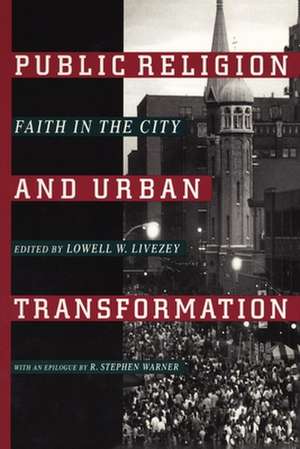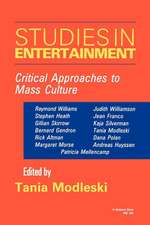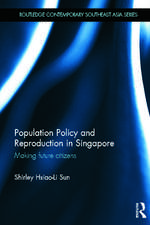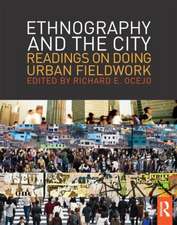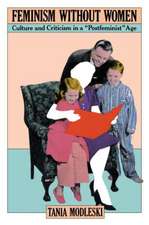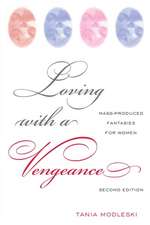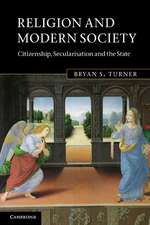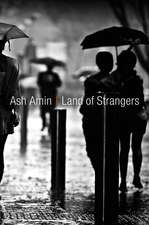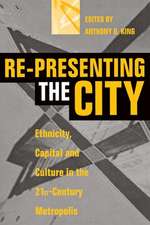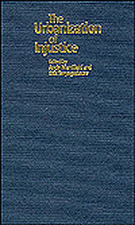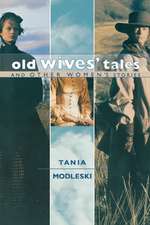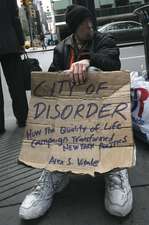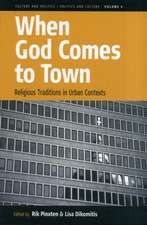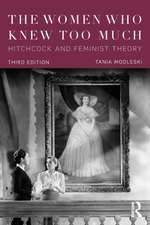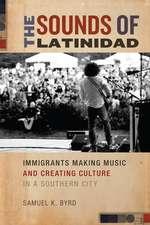Public Religion and Urban Transformation – Faith in the City: Religion, Race, and Ethnicity
Autor Lowell W. Livezeyen Limba Engleză Paperback – 30 apr 2000
| Toate formatele și edițiile | Preț | Express |
|---|---|---|
| Paperback (1) | 233.00 lei 6-8 săpt. | |
| MI – New York University – 30 apr 2000 | 233.00 lei 6-8 săpt. | |
| Hardback (1) | 532.38 lei 6-8 săpt. | |
| MI – New York University – 30 apr 2000 | 532.38 lei 6-8 săpt. |
Din seria Religion, Race, and Ethnicity
-
 Preț: 217.51 lei
Preț: 217.51 lei -
 Preț: 239.13 lei
Preț: 239.13 lei -
 Preț: 252.62 lei
Preț: 252.62 lei -
 Preț: 372.12 lei
Preț: 372.12 lei -
 Preț: 224.55 lei
Preț: 224.55 lei -
 Preț: 247.78 lei
Preț: 247.78 lei -
 Preț: 244.35 lei
Preț: 244.35 lei -
 Preț: 224.33 lei
Preț: 224.33 lei -
 Preț: 384.60 lei
Preț: 384.60 lei -
 Preț: 282.30 lei
Preț: 282.30 lei -
 Preț: 243.58 lei
Preț: 243.58 lei -
 Preț: 202.76 lei
Preț: 202.76 lei -
 Preț: 240.87 lei
Preț: 240.87 lei -
 Preț: 225.71 lei
Preț: 225.71 lei -
 Preț: 209.77 lei
Preț: 209.77 lei -
 Preț: 374.62 lei
Preț: 374.62 lei -
 Preț: 240.49 lei
Preț: 240.49 lei -
 Preț: 225.71 lei
Preț: 225.71 lei -
 Preț: 208.52 lei
Preț: 208.52 lei -
 Preț: 239.73 lei
Preț: 239.73 lei -
 Preț: 309.71 lei
Preț: 309.71 lei -
 Preț: 186.52 lei
Preț: 186.52 lei - 23%
 Preț: 528.23 lei
Preț: 528.23 lei -
 Preț: 228.21 lei
Preț: 228.21 lei
Preț: 233.00 lei
Nou
Puncte Express: 350
Preț estimativ în valută:
44.59€ • 46.76$ • 37.12£
44.59€ • 46.76$ • 37.12£
Carte tipărită la comandă
Livrare economică 01-15 aprilie
Preluare comenzi: 021 569.72.76
Specificații
ISBN-13: 9780814751589
ISBN-10: 081475158X
Pagini: 364
Dimensiuni: 152 x 229 x 25 mm
Greutate: 0.54 kg
Ediția:New.
Editura: MI – New York University
Seria Religion, Race, and Ethnicity
ISBN-10: 081475158X
Pagini: 364
Dimensiuni: 152 x 229 x 25 mm
Greutate: 0.54 kg
Ediția:New.
Editura: MI – New York University
Seria Religion, Race, and Ethnicity
Recenzii
"
it will alter - or perhaps confirm - your thinking about 'public religion' and how traditional and immigrant congregations address (or don't) member and community needs and attitudes and actions towardslarger social issues
an obvious choice for religious andcongregational studies and urban sociology programs. It is alsovaluable reading for any cleric or layperson interested in howcontemporary urban religious collectives are shaped by and help shape the lives of their own members, surrounding communities, and the larger society."
--Congregations "Rich in cultural analysis, thick description, maps, photographs, and anecdotes, this book should be read by scholars, policy makers, religious leaders, and anyone who wishes to better understand one of the most exciting stories on the American urban landscape at the turn of a new century."
--Robert Michael Franklin, President, Interdenominational Theological Center, Atlanta, Georgia "This book presents the initial results of a team-based ethnographic study aimed at understanding better the richness of religious life in the multiplicity of communities that make up modern Chicago."
Journal of Contemporary Religion "The highly successful result of a team-based, ethnographic approach to understanding the diversity-racial, ethnic, cultural, economic-of Chicago's religious communities, exploring important questions about religion's public role in the metropolis. A must read for those interested in the religious diversity and pluralism of American society or contemporary urban restructuring."
--Penny Edgell Becker, Department of Sociology, Cornell University, and Author of Congregations in Conflict "An interesting example of the challenge immigrants face as they attempt to emulate established American institutions while retaining those elements that allow them to function as cohesive communities of ethnic and religious identity."
--Yvonne Yazbeck Haddad, Professor of Islamic History, Georgetown University "Reaches across the boundaries of private faith and public action, of traditional turf and challenging new populations, of older generations and restless youth, of growing ethnic/religious groups where there can be no majority, and, as yet, no consensus . . . Uncomfortable but essential reading."
--Carl S. Dudley, Codirector of Hartford Institute for Religion Research and Professor of Church and Community, Hartford Seminary, Hartford, CT "Furnishes a rich and diverse insight into the changing American metropolis. Unlike virtually any other book I have read, it does so by examining how church leaders and members cope with these changes. In the end, we get stories not merely of churches and religious change, but of how a major social institution helps people of diverse faiths and backgrounds survive and succeed in the modern American metropolis."
--Anthony M. Orum, author of City-Building in America
"it will alter - or perhaps confirm - your thinking about 'public religion' and how traditional and immigrant congregations address (or don't) member and community needs and attitudes and actions towardslarger social issuesan obvious choice for religious andcongregational studies and urban sociology programs. It is alsovaluable reading for any cleric or layperson interested in howcontemporary urban religious collectives are shaped by and help shape the lives of their own members, surrounding communities, and the larger society." --Congregations "Rich in cultural analysis, thick description, maps, photographs, and anecdotes, this book should be read by scholars, policy makers, religious leaders, and anyone who wishes to better understand one of the most exciting stories on the American urban landscape at the turn of a new century." --Robert Michael Franklin, President, Interdenominational Theological Center, Atlanta, Georgia "This book presents the initial results of a team-based ethnographic study aimed at understanding better the richness of religious life in the multiplicity of communities that make up modern Chicago." --Journal of Contemporary Religion "The highly successful result of a team-based, ethnographic approach to understanding the diversity-racial, ethnic, cultural, economic-of Chicago's religious communities, exploring important questions about religion's public role in the metropolis. A must read for those interested in the religious diversity and pluralism of American society or contemporary urban restructuring." --Penny Edgell Becker, Department of Sociology, Cornell University, and Author of Congregations in Conflict "An interesting example of the challenge immigrants face as they attempt to emulate established American institutions while retaining those elements that allow them to function as cohesive communities of ethnic and religious identity." --Yvonne Yazbeck Haddad, Professor of Islamic History, Georgetown University "Reaches across the boundaries of private faith and public action, of traditional turf and challenging new populations, of older generations and restless youth, of growing ethnic/religious groups where there can be no majority, and, as yet, no consensus ... Uncomfortable but essential reading." --Carl S. Dudley, Codirector of Hartford Institute for Religion Research and Professor of Church and Community, Hartford Seminary, Hartford, CT "Furnishes a rich and diverse insight into the changing American metropolis. Unlike virtually any other book I have read, it does so by examining how church leaders and members cope with these changes. In the end, we get stories not merely of churches and religious change, but of how a major social institution helps people of diverse faiths and backgrounds survive and succeed in the modern American metropolis." --Anthony M. Orum, author of City-Building in America
--Congregations "Rich in cultural analysis, thick description, maps, photographs, and anecdotes, this book should be read by scholars, policy makers, religious leaders, and anyone who wishes to better understand one of the most exciting stories on the American urban landscape at the turn of a new century."
--Robert Michael Franklin, President, Interdenominational Theological Center, Atlanta, Georgia "This book presents the initial results of a team-based ethnographic study aimed at understanding better the richness of religious life in the multiplicity of communities that make up modern Chicago."
Journal of Contemporary Religion "The highly successful result of a team-based, ethnographic approach to understanding the diversity-racial, ethnic, cultural, economic-of Chicago's religious communities, exploring important questions about religion's public role in the metropolis. A must read for those interested in the religious diversity and pluralism of American society or contemporary urban restructuring."
--Penny Edgell Becker, Department of Sociology, Cornell University, and Author of Congregations in Conflict "An interesting example of the challenge immigrants face as they attempt to emulate established American institutions while retaining those elements that allow them to function as cohesive communities of ethnic and religious identity."
--Yvonne Yazbeck Haddad, Professor of Islamic History, Georgetown University "Reaches across the boundaries of private faith and public action, of traditional turf and challenging new populations, of older generations and restless youth, of growing ethnic/religious groups where there can be no majority, and, as yet, no consensus . . . Uncomfortable but essential reading."
--Carl S. Dudley, Codirector of Hartford Institute for Religion Research and Professor of Church and Community, Hartford Seminary, Hartford, CT "Furnishes a rich and diverse insight into the changing American metropolis. Unlike virtually any other book I have read, it does so by examining how church leaders and members cope with these changes. In the end, we get stories not merely of churches and religious change, but of how a major social institution helps people of diverse faiths and backgrounds survive and succeed in the modern American metropolis."
--Anthony M. Orum, author of City-Building in America
"it will alter - or perhaps confirm - your thinking about 'public religion' and how traditional and immigrant congregations address (or don't) member and community needs and attitudes and actions towardslarger social issuesan obvious choice for religious andcongregational studies and urban sociology programs. It is alsovaluable reading for any cleric or layperson interested in howcontemporary urban religious collectives are shaped by and help shape the lives of their own members, surrounding communities, and the larger society." --Congregations "Rich in cultural analysis, thick description, maps, photographs, and anecdotes, this book should be read by scholars, policy makers, religious leaders, and anyone who wishes to better understand one of the most exciting stories on the American urban landscape at the turn of a new century." --Robert Michael Franklin, President, Interdenominational Theological Center, Atlanta, Georgia "This book presents the initial results of a team-based ethnographic study aimed at understanding better the richness of religious life in the multiplicity of communities that make up modern Chicago." --Journal of Contemporary Religion "The highly successful result of a team-based, ethnographic approach to understanding the diversity-racial, ethnic, cultural, economic-of Chicago's religious communities, exploring important questions about religion's public role in the metropolis. A must read for those interested in the religious diversity and pluralism of American society or contemporary urban restructuring." --Penny Edgell Becker, Department of Sociology, Cornell University, and Author of Congregations in Conflict "An interesting example of the challenge immigrants face as they attempt to emulate established American institutions while retaining those elements that allow them to function as cohesive communities of ethnic and religious identity." --Yvonne Yazbeck Haddad, Professor of Islamic History, Georgetown University "Reaches across the boundaries of private faith and public action, of traditional turf and challenging new populations, of older generations and restless youth, of growing ethnic/religious groups where there can be no majority, and, as yet, no consensus ... Uncomfortable but essential reading." --Carl S. Dudley, Codirector of Hartford Institute for Religion Research and Professor of Church and Community, Hartford Seminary, Hartford, CT "Furnishes a rich and diverse insight into the changing American metropolis. Unlike virtually any other book I have read, it does so by examining how church leaders and members cope with these changes. In the end, we get stories not merely of churches and religious change, but of how a major social institution helps people of diverse faiths and backgrounds survive and succeed in the modern American metropolis." --Anthony M. Orum, author of City-Building in America
